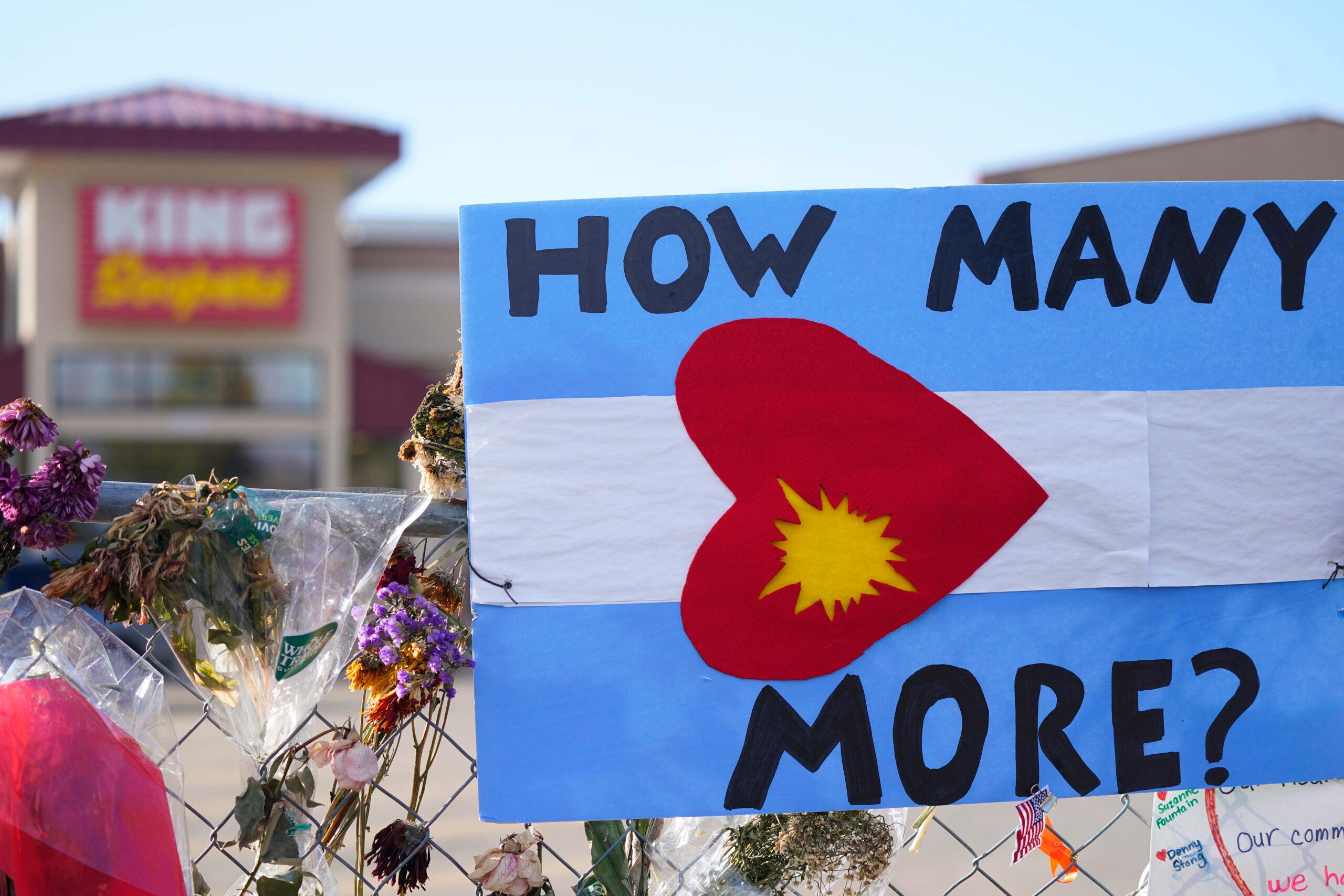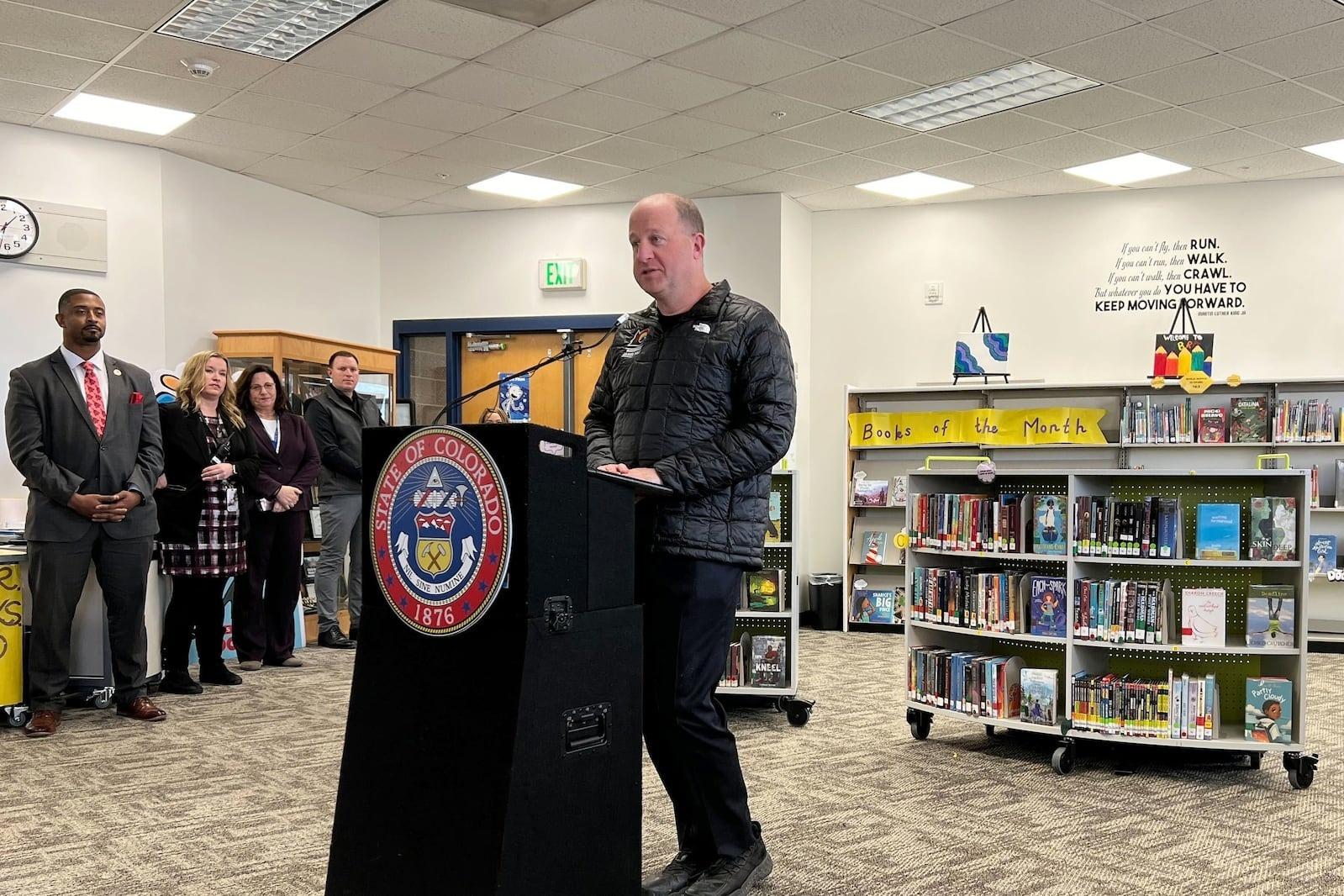
The man accused of killing 10 people at a Boulder King Soopers in 2021 pleaded not guilty by reason of insanity on Tuesday after a lead detective told a judge that he was targeting people who were fearful or running away from him.
Ahmad Al Aliwi Alissa, 24, sat in leg chains and a striped jumpsuit with his public defenders on Tuesday in a Boulder courtroom as prosecutors detailed how 10 people died in the parking lot and inside the grocery store on March 22, 2021.
Alissa has been hospitalized at the Colorado Mental Health Hospital in Pueblo for almost two years and is being forcibly medicated for schizophrenia.
In 69 seconds, prosecutors say the man fatally shot eight people and attempted to shoot 14 additional people with a semi-automatic rifle and several large capacity magazines — several of which were retrofitted to accommodate 30 rounds.
Within a few more minutes, he killed two more people, including a Boulder police officer.
“People were running, people were hiding and then he moved in with the intent to kill,” Boulder District Attorney Michael Dougherty told Boulder Chief Judge Ingrid Bakke. “He wasn’t simply shooting the store with bullets … It speaks to his brutality but also his aim, intent and focus.”
Boulder District Attorney Michael Dougherty gave new details about the mass shooting that has been delayed for several years as defense attorneys tried to make the repeated case that Alissa is mentally incompetent to stand trial.
Dougherty painted roughly 10 terrifying and chaotic minutes from when the gunman shot the first victim in the parking lot, Neven Stanisic, a repairman there to fix a coffee machine at the Starbucks, to the last victim, Boulder Police officer Eric Talley, who was the first responder to run into the store to try to find the gunman after hearing reports on his radio of shots fired at the grocery store.
Alissa reportedly didn’t “spray” the store with bullets, but rather appeared to target people who were running away from him or trying to escape from the store, said Boulder Police Detective Sarah Cantu.
One man, Paul Rotar, was shopping while chaos reigned all around him and he didn’t notice, lawyers said. Alissa allegedly pointed a rifle at him but then decided against shooting him and kept going.
Several shoppers hid on shelves behind bags of chips and other groceries. Others lay flat on the floor and stayed still and they all survived.
One woman, Sarah Moonshadow, crouched on the ground with her son and waited until she could hear the sounds of him reloading the gun before trying to escape, prosecutors said.
Other people escaped by bolting out back doors, getting into delivery trucks outside, hiding behind grocery displays, and crouching on the shelves at the pharmacy.
The gunman shot all of the victims more than once, or, as Cantu put it, “until they stopped moving,” except for Rikki Olds. The 25-year-old clerk at the store was shot point-blank in the chin.
There was no one injured by gunfire in the shooting — everyone hit with bullets was killed. One woman, Elan Shakti, was injured as she tried to run out, tripping and falling on her face.
Boulder police officer Richard Steidell crouched on the ground after Talley, his colleague, was shot and killed. On the ground, Steidell waited for the gunman, who was in the back of the store kind of moving back and forth, to come into view down an aisle. When he saw him, he shot him in the leg.
The gunman disrobed down to his underwear and dropped all the weapons. Photos were shown in court of his pile of clothes and tactical gear and smears of blood on the white tile floor next to a display of beers on sale.
Alissa was found mentally competent to assist in his own defense in August and will continue to be forcibly medicated at the Colorado Mental Health Institute in Pueblo into 2024.
His public defenders Kathryn Herold and Samuel Dunn said that Alissa pleaded not guilty by reason of insanity, which means that Alissa was clinically insane at the time the crime was committed.
Throughout the hearing, Alissa moved around and leaned in to whisper to Dunn, who filled his water multiple times with a pitcher. The alleged gunman was handcuffed and flanked by five sheriff's deputies on three sides of him.
Alissa's defense team will now have to prove — either to a jury or the judge — that, among other things, his mind is “so diseased or defective at the time of commission of the act as to be incapable of distinguishing right from wrong with respect to that act and is not accountable,” according to state statutes.
Already, prosecutors are poking holes in that defense, including throwing details in at Tuesday’s hearing that create a narrative of premeditation.
Alissa allegedly had notes on his iPhone about how to fire guns and how to fire guns quickly. He had been to shooting ranges and had purchased guns and ammunition in the months leading up to the attack.
And, Dougherty said in court, that Alissa was working up to 60 hours a week in his family’s restaurant leading up to the attack and that he had traveled to several states and also abroad.
In arguing for a $500 million bond, Dougherty said Alissa, despite being forcibly medicated, continues to be a danger to the community.
“From day one, he has demonstrated a complete lack of remorse, a complete lack of accountability,” Dougherty said. “He gunned down a uniformed police officer … He only surrendered after he, himself, was shot.”
Judge Bakke set a $100 million bond for Alissa, who will remain in Pueblo and in treatment and with forcible medication into 2024.
Dougherty also said Alissa has chosen to opt out of group and individual therapy and help sessions at the state’s mental health hospital and has taken steps not to take his medications, even though he is under a court order to do so.
Both sides tentatively agreed to an August 2024 trial for Alissa — and both sides will get a competency evaluation report written by doctors in Pueblo by early January.
Robert Olds, the uncle of Rikki Olds, said outside the court on Tuesday that he was happy with the progress but that the details unveiled at Tuesday’s hearing were painful.
“Very tough day,” he said. “Hearing a few more details of a loved one’s murder. You know that she was murdered but point blank, shot in the face with no regard for human life. That stings.”









